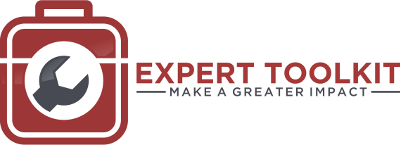Why you need to use the right Management Consulting Tools
Management consulting tools are an integral part of the management consulting process. These tools enable consultants to analyze and solve complex business problems, identify opportunities for improvement, and develop and implement effective solutions.
There are various types of management consulting tools, including those that are used for data analysis, strategy development, process improvement, and communication. Some examples of popular management consulting tools include:
-
SWOT analysis: This tool is used to identify an organization's strengths, weaknesses, opportunities, and threats. It helps consultants understand the internal and external factors that may impact the organization's performance.
-
PESTEL analysis: This tool is used to assess the political, economic, social, technological, environmental, and legal factors that may impact an organization. It helps consultants understand the external factors that may influence the organization's operations and performance.
-
Porter's Five Forces: This tool is used to analyze the competitive forces in an industry and assess the potential for profitability. It helps consultants understand the dynamics of an industry and the competitive landscape.
-
Balanced Scorecard: This tool is used to measure an organization's performance across four perspectives: financial, customer, internal processes, and learning and growth. It helps consultants identify areas for improvement and track progress over time.
The benefits of using management consulting tools are numerous. These tools can help organizations improve efficiency, enhance decision-making, improve communication, increase competitiveness, and achieve better financial performance.
Here are some tips from the Expert Toolkit team for using management consulting tools effectively:
-
Choose the right tool for the job: It is important to select the right tool for the specific problem or opportunity being addressed. Different tools are suited to different types of analysis and decision-making.
-
Involve relevant stakeholders: To ensure that the results of the analysis are meaningful and relevant, it is important to involve stakeholders from different parts of the organization in the process.
-
Keep the analysis up to date: It is important to periodically review and update the analysis to ensure that it remains relevant and accurate.
-
Use the results to drive action: The results of the analysis should be used to inform decisions and drive action. It is important to have a clear plan in place for implementing the recommendations that emerge from the analysis.
Overall, management consulting tools are a valuable resource for organizations looking to improve performance and achieve their goals. However, there are several common mistakes that organizations and consultants make when using management consulting tools:
-
Using the wrong tool for the job: Choosing the wrong tool for the specific problem or opportunity being addressed can lead to inaccurate or irrelevant results.
-
Not involving relevant stakeholders: Failing to involve stakeholders from different parts of the organization in the analysis process can result in incomplete or biased results.
-
Not keeping the analysis up to date: Failing to periodically review and update the analysis can result in out-of-date or inaccurate results.
-
Not using the results to drive action: Failing to use the results of the analysis to inform decisions and drive action can result in missed opportunities for improvement.
-
Relying too heavily on the tool: It is important to remember that management consulting tools are just that - tools. They should be used to supplement, not replace, critical thinking and problem-solving skills.
-
Not considering the context: It is important to consider the specific context in which the analysis is being conducted, as this can have a significant impact on the results.
By avoiding these common mistakes, organizations and consultants can ensure that they are using management consulting tools effectively and achieving the desired results. If you are looking for the best Management Consulting tools, look no further than our Management Consulting Toolkit which has 50 of the best management consulting tools and templates with easy to follow instructions - created by our seasoned experts. We also recommend Managememt Consulting Basics to help you learn the key skills to become a strong management consultant. Lastly, Being a Professional Consultant provides tips, advice and best practices on how to be a professional consultant.
Share this article
- Tags: Best Practices, Business Analysis Tools, Business Consulting, Business Improvement, Business Transformation Tools, Lessons Learned, Management Consulting Tools, Team Insights
